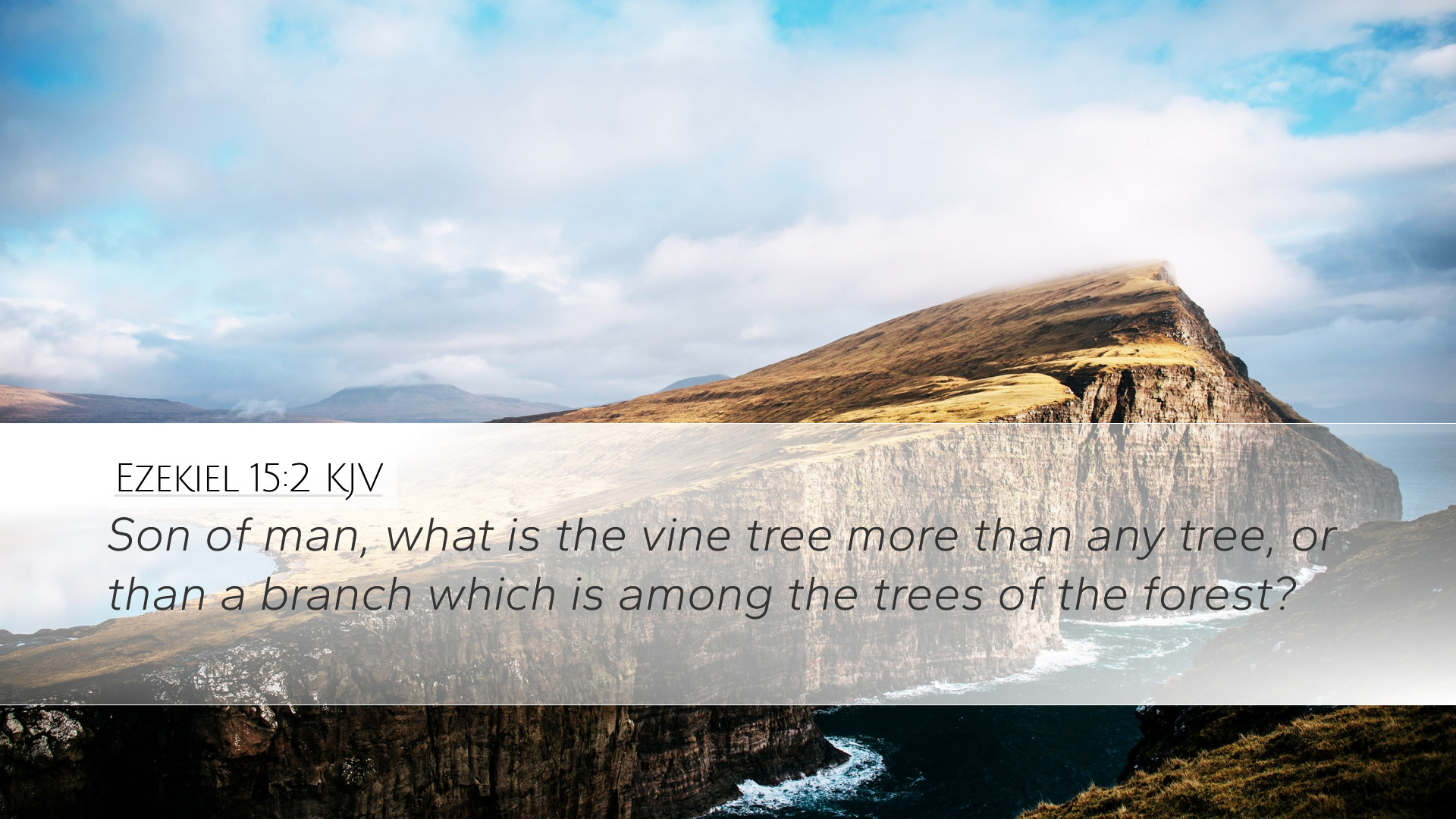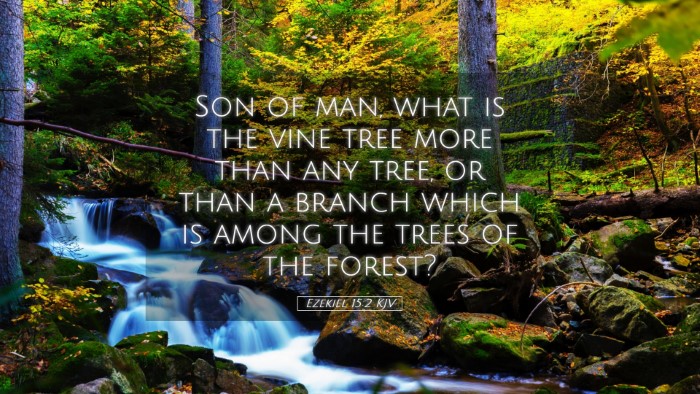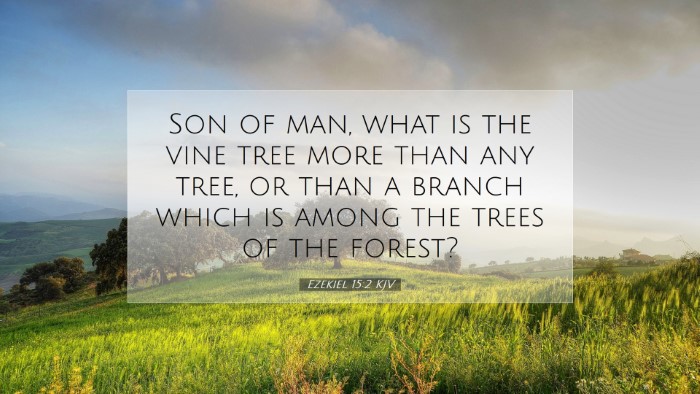Bible Commentary on Ezekiel 15:2
Ezekiel 15:2: “Son of man, what is the vine tree more than any tree, or than a branch which is among the trees of the forest?”
Introduction
This verse from the Book of Ezekiel introduces a profound metaphor regarding the vine tree, which serves as a vehicle for theological insight into Israel's status and relationship with God. The symbolism of the vine is significant throughout Scripture, and understanding its implications is crucial for pastoral application, theological reflection, and scholarly examination.
Theological Context
This passage is set within the prophetic literature, where Ezekiel, as a prophet during the Babylonian exile, employs vivid imagery to convey God’s messages. The metaphor of the vine is particularly poignant in depicting Israel's identity and purpose. Ezekiel addresses the people of Israel, who have turned away from God, using the vine as a symbol to illustrate their plight.
Commentary Insights
Matthew Henry's Commentary
Matthew Henry notes that the vine is often seen in the Scriptures as a symbol of both Israel and divine sustenance. He emphasizes that the vine tree, while useful, is not inherently exceptional compared to other trees. Its worth lies in its connection to the vine dresser, who cultivates and nurtures it. Henry indicates that the Israelite people, in their disobedience, have lost sight of their true value, which is found in their relationship with God.
Albert Barnes' Notes
Albert Barnes provides a similar perspective, highlighting that Ezekiel’s rhetorical question serves to remind Israel of their insignificance apart from the Lord's favor. He argues that the vine, a plant that yields fruit, is unique primarily through its cultivation. Barnes asserts that the metaphor points to Israel's need for reliance on God for spiritual vitality and productivity, emphasizing that apart from Him, they are like a vine that bears no fruit.
Adam Clarke's Commentary
Adam Clarke enhances this understanding by offering a more nuanced exploration of the vine's characteristics. He explains that the vine requires support and care to thrive, which serves as a representation of the Israelites' relationship with God. Clarke argues that the question posed by Ezekiel urges the people to recognize their dependence on divine grace and providence. He stresses the importance of divine cultivation, as a vine neglected can become barren, much like a people who stray from their God.
Symbolic Significance of the Vine
The symbolism of the vine extends beyond individual understanding to corporate identity. Israel, as the vineyard of God (Isaiah 5:1-7), was designed to bear fruits of righteousness and justice. Thus, the inquiry in Ezekiel 15:2 serves as a poignant reminder of their calling and the consequences of their unfaithfulness.
Contrast with Other Trees
Drawing a comparison between the vine and other trees, Ezekiel highlights the vulnerability and fragility of the vine. Unlike robust trees, the vine depends on pruning, training, and the vineyard gardener's skill to achieve its purpose. This metaphor starkly contrasts the self-sufficiency attributed to other trees, underlining Israel's need for divine intervention and guidance.
The Application for Today
The lessons drawn from Ezekiel 15:2 are rich with application for modern believers. For pastors, this text can serve as a reminder to cultivate congregations focused on their dependency on God, emphasizing that fruitfulness comes from adhering to Him rather than self-reliance. For students and scholars, it provides fertile ground for exploring themes of covenant, identity, and the nature of divine-human relationships within the theological landscape.
Exhortation to the Believer
In the contemporary context, believers are urged to consider their place as the branches of the true vine (John 15:5). Just as Ezekiel posed a pointed question to Israel, modern followers of Christ are challenged to assess their own fruitfulness and reliance on divine grace. The call to remain connected to Christ—the true vine—remains paramount for a vibrant faith life, leading to genuine transformation and witness in the world.
Conclusion
Ezekiel 15:2 invites deep reflection on the nature of spiritual vitality, dependence on God, and the consequences of neglecting that relationship. The combined insights from Matthew Henry, Albert Barnes, and Adam Clarke shine light on the profound spiritual truths encapsulated in this verse. For believers today, it serves as a poignant reminder of their need to dwell in the presence of God, allowing Him to cultivate them into fruitful vessels for His kingdom.


